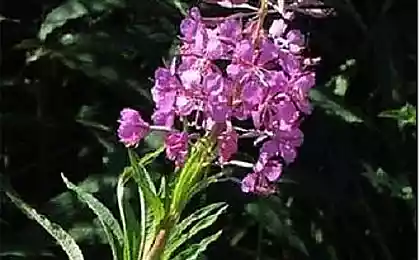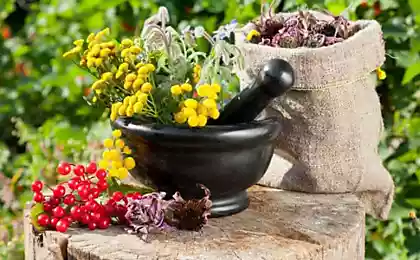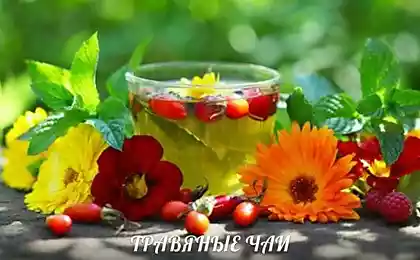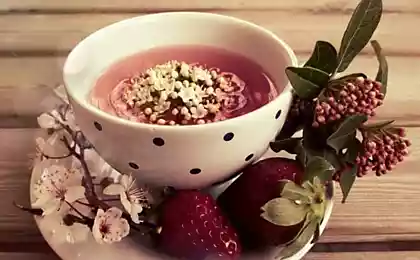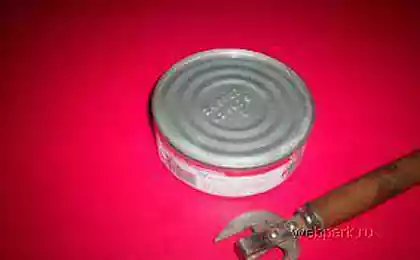600
Medicinal tea: 13 traditional Chinese recipes

China is the homeland of tea, and the history of its consumption stretches from five thousand years of ancient times. Useful properties of tea and its importance for the preservation of health was known in China long ago.
In one of the earliest treatises on medicinal herbs "Medicinal products of Shen Nong" it is written: "the Taste of tea bitter. His technique is useful for the brain, eliminates drowsiness, refreshes and improves the eyesight." During the Ming dynasty, Li Shizhen wrote about the healing properties of tea in his treatise "a Brief guide to drugs": "Tea bitter and sweet, slightly cool, but not toxic. Helps with hemorrhoids, fistulas and cardiac thirst. Is diuretic, dispels mucus from the heat, and restrains a surge of life energy to the upper body, improves digestion".
For thousands of years the Chinese people have accumulated very rich experience of the use of tea for medicinal purposes. Below we will discuss some of them.
Modern research shows that tea contains vitamins C and b, which are used in the treatment of leprosy, scurvy, beriberi, inflammation in the corners of the mouth, dry cracked skin, scab, focal alopecia, acne and menstrual irregularities.
Contained in the tea tannic acid has astringent properties. The caffeine refreshes the mind, expands blood vessels, increases urination and lowers blood pressure. Theophylline dilates blood vessels and breaks down cholesterol. Tea pigments prevent and cure atherosclerosis.
Long consumption of tea prevents the risk of cancer prevents and cures coronary heart disease, pulmonary heart failure and bronchitis, improves functioning of the Central nervous system, increases metabolism, gives beauty, and prolongs life. Studies have shown that of the 11 centenarians Chengdu in South-Western China, turned a century abroad, 9 regularly drink tea for many years.
Despite the benefits that brings with it the consumption of tea, you should stick to this scientific approach. For example, it is not recommended to drink a lot of tea at night because it has a tonic effect and can lead to insomnia.
Tea is also diuretic. After drinking it pretty before bed, you stimulate urination, and good night you will not succeed. Tea immediately after a meal is also not recommended, as contained in tea tannin, when combined with proteins and other components of the food eaten, will give deposits, adversely affects digestion and assimilation. You cannot drink tea drugs, it alters their effect and reduces efficiency. Do not pour the tea leaves in boiling water, under the influence of very high temperature destroys the vitamin C and evaporates all the flavor.
Black tea: collected fresh tea leaves are first kneaded and rubbed, then fermented and dried. Chinese black tea reduces the level of lipids in the blood, making blood vessels more elastic, resulting in improved blood flow, eliminating stasis, removes internal heat of the brain and refreshing the mind.
Green tea: tea leaves collected tinder and dried without fermentation. There are different types of Chinese green teas: Tung, and Han Xiang. In Hangzhou there is a growing Longjing tea, Xinyang – Maisani, these are two very famous varieties of green tea. Chinese green tea improves blood circulation in the brain, thereby refreshing the mind, removes internal heat, increasing the excretion of urine, eliminates inflammation from the internal heat.
Jasmine tea is a black tea mixed with Jasmine flowers. It is fragrant and refreshing.

Milk tea and tea: boil tea with cow's or goat's milk, with butter. In addition to the above qualities of black and green tea, it has a high nutritional value and useful for people of middle and old age, and weakened physically. This tea is widely popular among peoples whose way of life is mostly associated with animal husbandry, living in Tibet, Xinjiang, Qinghai, Ningxia and Inner Mongolia.
Caprifoliaceae tea: take 3 g of honeysuckle and 1 g of tea, pour hot water. This tea eliminates internal heat, eliminating toxins and healing the ulcers and the flu.
Mint tea: take 2 g of dried mint leaves (or 6 g fresh) and 1 g of tea, pour boiling water. This tea helps with flu, headache, toothache, sinusitis.
Chernoslivovymi tea: take 3 fresh fruit prunes, chop, mix with 1 g of tea and 6 g of white sugar or candy. Pour the boiling water. This tea promotes salivation, alleviating thirst, removes heat, increases appetite.
Tea with bamboo leaves: take 3 g dried bamboo leaves (or 6 g fresh) and 1 g of tea. Pour the boiling water. This tea relieves fever of the heart, eliminates irritability, cures fever and promotes urination, relieves mental irritation, cures infections of the genitourinary system.
Tea with the skin of the stems of sorghum: remove skin from stalks of sorghum, brown on the coals until becomes brown and grind. Take 3 grams, add 1 gram of tea and pour boiling water. This tea helps to eliminate irritation of the bladder and urinary tract infections, and heals infections of the genitourinary system.
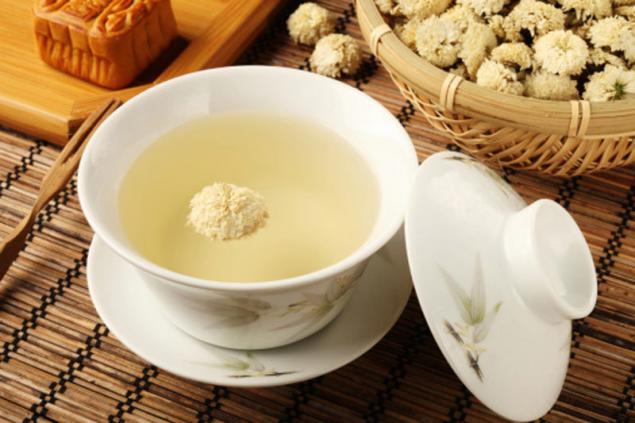
Hrizantemovym tea: take 3 grams of chrysanthemum flowers and 1 g of tea, pour boiling water. This tea removes the heat of the liver and improves vision, helps with vertigo, headaches and high blood pressure.
The hawthorn tea: take 10 g of dry hawthorn (or 30 g fresh fruit), grind, pour 200 ml of water and boil for 20 minutes. Remove from heat and add 1.5 g of tea leaves. When cool, strain and drink. This tea helps digestion, kills bacteria, eliminates blood stasis, reduces the number of lipids in it. It is used in indigestion, postpartum abdominal pain, persistent post-partum secretions (lohia), bacterial dysentery, elevated blood lipids and obesity.
Tea wave: take 30 g of Masha, and boil in 200 ml of water for 40 minutes. Remove from heat and add 1.5 g of tea. When cool, drink it slowly. This tea eliminates heat and toxins, relieves for the summer heat and tumors. Helps with angina, irritability and thirst, dizziness, headaches and toothache, sore throat.
Tea with turnips: take 60 grams of fresh turnips (or 30 g dried) and boil in 500ml water for one hour. After removing from heat, add 5 g of tea. After 5 minutes, strain and drink. This tea helps with carbon monoxide poisoning.
Tea with lovage: take 6 g of canisiana (dried roots of lovage) and boil in 250 ml of water for 10 minutes. Add 3 g of tea leaves and remove from heat. When cool, drink. Helps with headaches, dysmenorrhea and delayed menstruation.
Perilla tea: take 15 g of dried leaves of Perilla (or 30 grams fresh leaves of Perilla/suzy) and boil for 15 minutes in 500 ml of water. Add 1.5 g of tea leaves and remove from heat. Drink when the drink is already warm. This tea helps in cases of poisoning by crab and fish.
Tea with lots hyssop: take 15 g of dried leaves of hyssop large (or 30 g fresh) and boil for 10 minutes in 300 ml of water. Add 2 g of tea leaves and remove from heat. When it becomes warm, drink. This tea is used for pain in the stomach, weakness of the stomach, nausea, vomiting, headaches and dizziness, caused by an excess of cold air and drinking cold drinks in the summer heat.
Source: /users/1077

